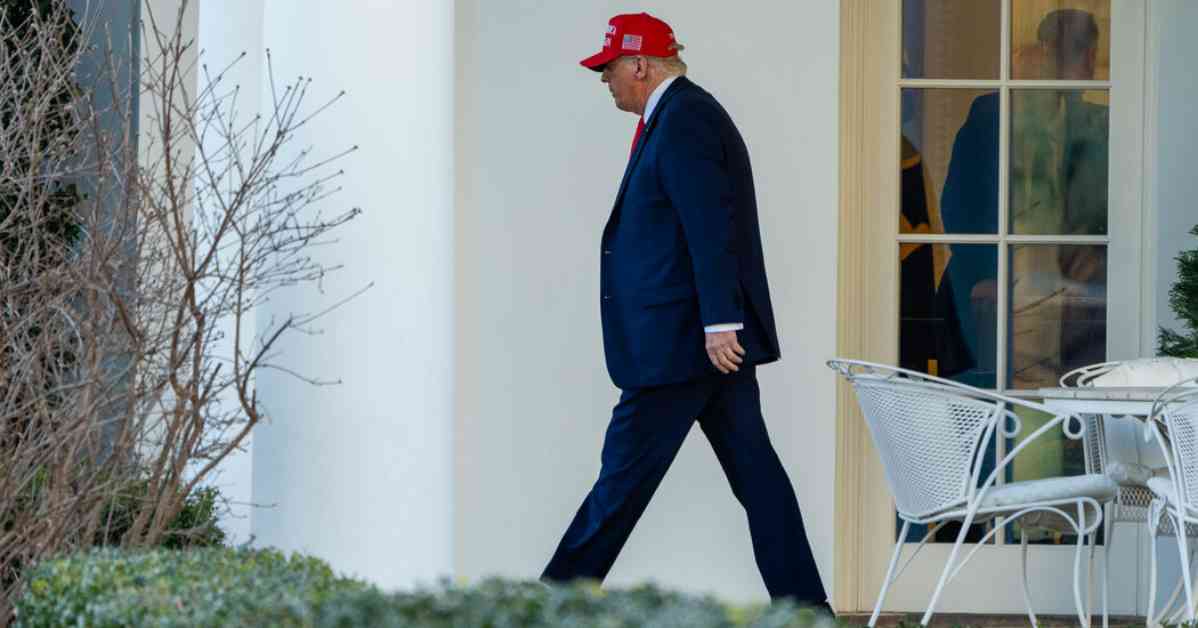A federal judge has ruled that President Trump cannot fire the leader of a federal watchdog agency without cause, in a landmark decision that has significant implications for the protection of whistle-blowers. The ruling by Judge Amy Berman Jackson of the U.S. District Court for the District of Columbia on Saturday evening granted a permanent injunction against the government’s efforts to remove Hampton Dellinger, the head of the Office of Special Counsel.
The Office of Special Counsel, created under a law passed in 1978, plays a crucial role in safeguarding federal whistle-blowers who come forward to report wrongdoing within the government. Judge Jackson emphasized the importance of Mr. Dellinger’s independence in overseeing this vital function, highlighting the potential harm to the agency’s mission if he were to be removed without justifiable cause.
The ruling immediately sparked a legal battle, with the Trump administration moving to appeal the decision and setting the stage for a possible showdown at the Supreme Court. The administration’s challenge to the ruling signifies the high stakes involved in this case, as it raises fundamental questions about the limits of presidential authority and the protection of government employees who speak out against misconduct.
Protecting Whistle-blowers: Upholding the Rule of Law
Judge Jackson’s 67-page opinion underscored the significance of the Office of Special Counsel’s mandate in upholding the rule of law and preventing political interference in the federal workforce. The judge’s decision to issue a permanent injunction against Mr. Dellinger’s removal without cause reflects a commitment to preserving the integrity of the whistle-blower protection system established by Congress.
By emphasizing the importance of Mr. Dellinger’s independence in carrying out his duties, Judge Jackson sent a clear message about the need to shield federal employees from arbitrary dismissals based on political considerations. The ruling serves as a bulwark against potential abuses of power that could undermine the effectiveness of the whistle-blower protection mechanisms put in place to safeguard the public interest.
Legal Battle Ahead: Implications for Presidential Authority
As the Trump administration pursues its appeal of the ruling, the case is likely to raise complex legal questions about the scope of presidential authority in removing agency heads. The outcome of this legal battle could have far-reaching implications for the balance of power between the executive branch and independent agencies tasked with oversight and accountability.
The prospect of the Supreme Court weighing in on this dispute underscores the significance of the issues at stake, as the highest court in the land may need to clarify the limits of presidential discretion in personnel matters. The outcome of this case could set important precedents for future administrations and shape the legal landscape governing the relationship between the president and federal agencies.
In conclusion, the ruling by Judge Amy Berman Jackson to block President Trump from firing the head of the Office of Special Counsel without cause represents a watershed moment in the protection of whistle-blowers and the preservation of government accountability. The legal battle that lies ahead will test the resilience of our democratic institutions and the commitment to upholding the rule of law in the face of political challenges. As the case unfolds, the nation will be watching closely to see how our system of checks and balances navigates the complexities of presidential authority and the imperative of protecting those who speak truth to power.

